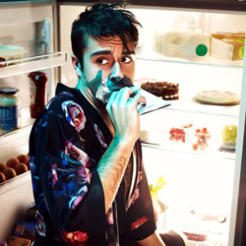The British Heart Foundation has launched a mass participation fundraising event which asks people to give up chocolate in March.
It is the charity’s first abstinence-based fundraising challenge and works in a similar way to Cancer Research UK’s and Macmillan Cancer Support’s challenges that ask people to give up alcohol for month.
Almost 4,000 people have signed up to take part in the Dechox challenge so far. ‘Dechoxers’ are being encouraged to donate the money they would have spent on chocolate and ask friends and family to sponsor them.
If they are desperate for a chocolate fix participants will be able to pay a fine or ask a friend to donate a treat on their behalf.
The BHF polled 3,000 people and found that 25 per cent would find giving up chocolate more difficult than giving up alcohol, caffeine or sex. One third admitted to eating chocolate in secret on their way home from work and 43 per cent said that they had hidden chocolate wrappers to disguise how much they have eaten.
Tracy Parker, heart health dietician at the BHF, said: “A bit of chocolate is fine in moderation but it should be a treat… By giving it a go you could not only kick-start a healthier new lifestyle but help us keep more hearts beating with our life-saving research.”
Macmillan Cancer Support and Cancer Research UK both hold mass-participation events encouraging people to give up alcohol in October and January respectively.
In 2014 Macmillan’s Go Sober for October raised £3.7m with more than 100,000 participants up from £2.3m with 30,000 participants in 2013, which was its first year.
This year 54,000 people took part in Dryathlon for CRUK this January and have so far have raised £4m, with the charity still accepting money. It attracted 33,000 sign-ups and raised more than £4.2m in its first year and in 2014 it raised more than £5m and had 50,000 participants.









